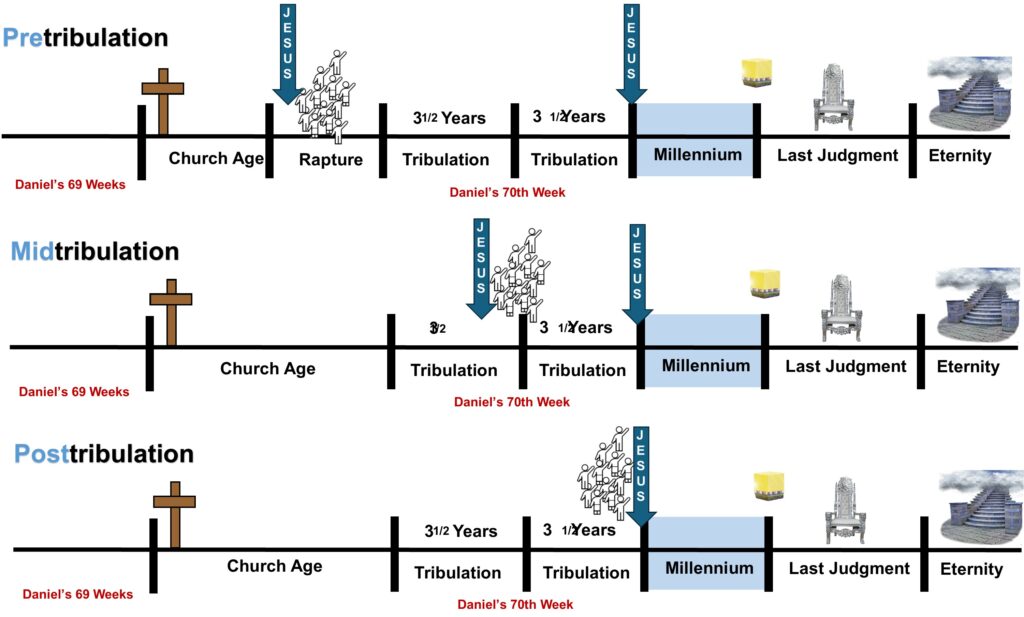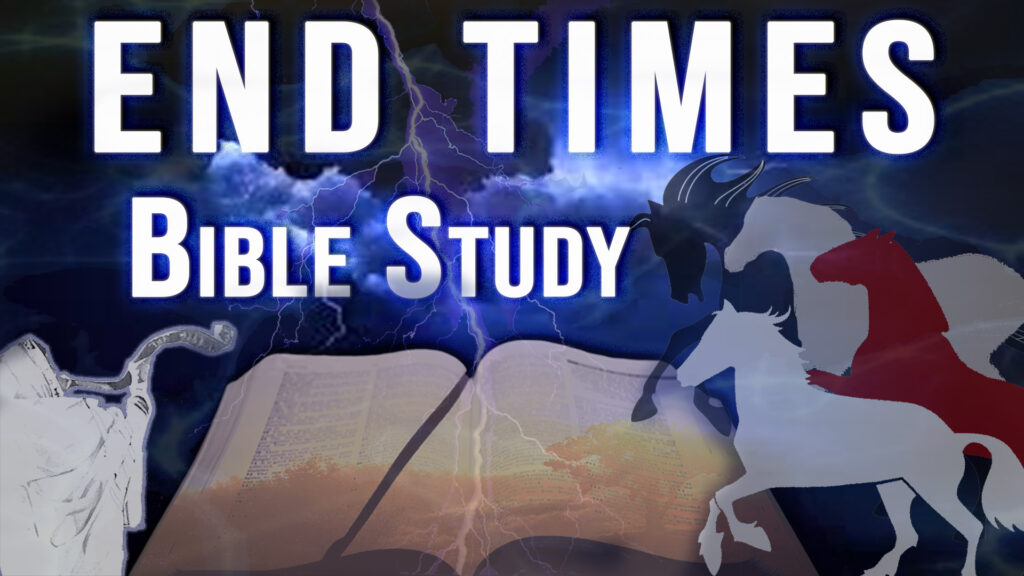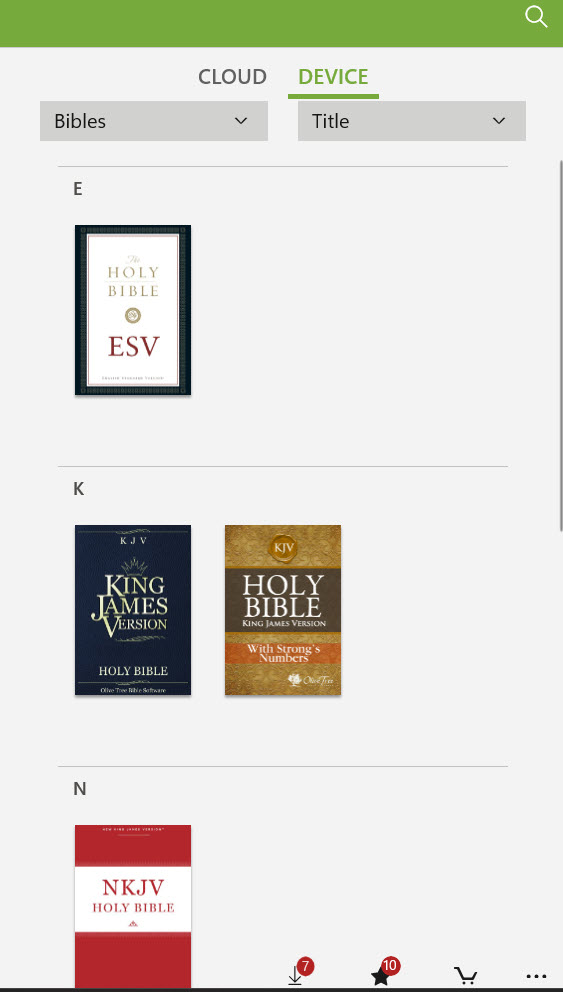Prologue
This End Times Bible Study will cover and compare the scriptures throughout the Bible that deal with the last days. The goal of this study is to take what is considered too complicated to understand, break it down, and lay it out in a way that makes it easy to comprehend. Jesus wanted us to understand but it takes effort on our part. Revelation starts with the statement that those who read this book will be blessed.
The Revelation of Jesus Christ, which God gave unto him, to shew unto his servants things which must shortly come to pass; and he sent and signified it by his angel unto his servant John: 2 Who bare record of the word of God, and of the testimony of Jesus Christ, and of all things that he saw. 3 Blessed is he that readeth, and they that hear the words of this prophecy, and keep those things which are written therein: for the time is at hand.
1 The revelation of Jesus Christ, which God gave him to show to his servants the things that must soon take place. He made it known by sending his angel to his servant John, 2 who bore witness to the word of God and to the testimony of Jesus Christ, even to all that he saw. 3 Blessed is the one who reads aloud the words of this prophecy, and blessed are those who hear, and who keep what is written in it, for the time is near.

Jesus thought the words written in Revelations were important enough for John to write them down and then take them to the seven churches of Asia.
10 I was in the Spirit on the Lord’s day, and heard behind me a great voice, as of a trumpet, 11 Saying, I am Alpha and Omega, the first and the last: and, What thou seest, write in a book, and send it unto the seven churches which are in Asia; unto Ephesus, and unto Smyrna, and unto Pergamos, and unto Thyatira, and unto Sardis, and unto Philadelphia, and unto Laodicea.
10 I was in the Spirit on the Lord’s day, and I heard behind me a loud voice like a trumpet 11 saying, “Write what you see in a book and send it to the seven churches, to Ephesus and to Smyrna and to Pergamum and to Thyatira and to Sardis and to Philadelphia and to Laodicea.”

Within the Old Testament, the Bible mentions the last days in Psalms, Isaiah, Jeremiah, Ezekiel, Daniel, Joel, Micah, Zechariah, and Malachi. In the New Testament, they are mentioned in Matthew, Mark, Luke, John, Acts, 1 & 2 Corinthians, Ephesians, Philippians, 1 Thessalonians, 1 & 2 Timothy, 2 Peter, 1 John, Jude, and Revelation.
The hardest part is trying to figure out where to begin. Each writer focuses on a different part or places more emphasis on certain things. However, they are all talking about the same things that will happen at the same time. This study will pull those different sections together to compare what is said, to make a timeline of events. At the end of this study, the learner will be able to discuss the facts of what the Bible has to say about the End Times. They will not be easily deceived because they are comfortable in what they know the Bible says.
This study will not end with a date of when Jesus will return. No man knows the date or the hour, but Jesus expects us to know the seasons and what is happening around us. We are supposed to be watchful and not be caught asleep when the time comes upon us. We can’t be watchful if we don’t know what to watch for.

What I Believe
The purpose of this study is not to force you to believe what I believe, what my pastor believes, or what my great-granny believed. Most of the time what we believe comes from traditions we are raised with—things we just took for granted but never checked out ourselves.
I am 60 years old, and I was raised in church. I came from a generation where it was considered an insult to ask the pastor a question. If you did ask a question, then you didn’t TRUST fully what the pastor was saying. Blessedly, God put me under a pastor who valued knowledge of the Bible and loved to share it, because I was always full of questions. Not because I doubted anyone but because I wanted to fully understand what the Bible was telling me so I could be confident enough to say, “I believe this… because”.
I have listened to and read many Bible studies on the End Times. Most of them will give you long-winded examples of what other people believe and why that is not so. I think this adds to the complexity of the study and the confusion. I will endeavor not to do that in this study.

Self-Paced
This study will be self-paced, which means you will be able to sit down and study as much at one time as you can grasp and no more. You won’t be forced to rush along to keep up with anyone else. You can take time to do more research where needed and time to be sure you understand a point and agree with it before moving on.

Bible Versions
The Bible scriptures used will be from the King James Version, but another version may be referred to. I do value looking up scripture in another version, but I always return to the KJV and teach from it. This study will print out the KJV version, but you are encouraged to look up the scripture yourself. Try reading it in the Amplified, Wuest New Testament, New King James, ESV, or for a more in-depth study of the Old Testament read the JPS Hebrew-English Tanakh version.
The KJV, NKJV, and ESV are word-for-word translations of the Bible. The Message Bible is a paraphrase of what the original says.
I do not suggest using the NIV version of the Bible. The NIV is not a direct translation of the Bible but a thought-for-thought description of what the author felt the scripture said. This version leaves a lot of important scripture out and I am not comfortable placing my soul into the hands of what someone else thinks the scripture said.
There are many other versions of the Bible. Use whatever version you are comfortable with but make sure to research it well first.

Doctrine
I am a One God Apostolic, which means I follow the teachings of the Apostles. I am not affiliated with any organization. However, this study’s purpose is not to teach doctrine. We can agree to disagree and still manage to study the book for what it says. Truth is truth. This is a straight-up study of the Word of God. If at any time I add an opinion I will make it plain “This is my opinion” at which time you are welcome to draw your conclusions and ignore mine.

Trib’s
Most Christians have a preconceived idea of when they think the Rapture will take place. These determinations are usually based on tradition or on a feeling what they think “should be” right. Very few can say they have studied the scripture for themselves and determined “this” is what I believe.
The different points are Pre-Tribulation, Mid-Tribulation, and Post-Tribulation. I will tell you straight off I do not believe Pre-Trib is correct. However, I haven’t set my mind on anything at this time. I have completed a lot of studies but not in this style. I am keeping an open mind myself to see what the scripture says.





2 Responses
Greetings! Very helpful advice within this post!
It’s the little changes which will make the most significant changes.
Thanks for sharing!
You made some really good points there. I checked
on the net for additional information about the issue and found most
people will go along with your views on this site.